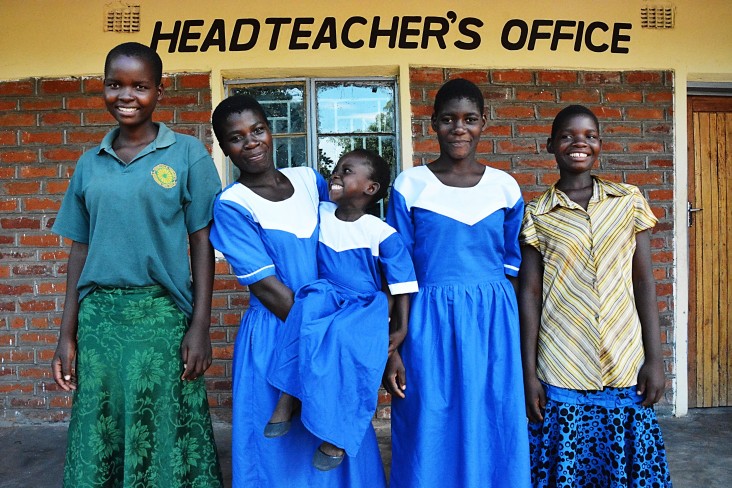Speeches Shim

USAID’s Let Girls Learn AMAA (Give Girls a Chance to Learn) project in Malawi seeks to deliver a range of district specific activities to mitigate the barriers to girls’ enrollment and retention in school. The project will work in five priority districts including Balaka, Machinga, Phalombe, Mzimba and Chikwawa, targeting girls aged 10-19 in both upper primary and secondary schools. Led by Save the Children, AMAA will work with local and international NGOs as well as NORC, the Ministry of Education in Malawi, and plans to partner with USDA to mitigate the barriers preventing girls’ enrollment and retention in school.
AMAA has developed a package that includes targeted yet competitive bursaries, construction of secondary schools, extracurricular and in school activities to empower girls and strategies to transform gender norms and reduce school-related gender based violence (SRGBV). This Let Girls Learn project will focus on the reduction of early and child marriage and teen pregnancy for the purpose of increased school access, performance and retention. For girls’ to achieve academic success, they must enter school, stay in school, be learning while in school, and be healthy and supported by their community at all times.
ACTIVITY ELEMENTS
Working closely with school leadership, parents, men in the community, teachers and boys, AMAA will bring a coordinated set of interventions to 321 target schools and students through actions outlined below.
Increasing Access to Schools and Safety for Girls by:
Construction one 50-bed girls’ dormitory in the northern Mzimba District and providing targeted, but competitive scholarships and accommodation fees for girls. A dormitory means that even those girls who live too far to commute will have the same opportunities to access secondary school, and those who are self-boarding, guesthouses or private rooms nearby, will no longer have to subject themselves to dangerous commutes.
Construction of 10 secondary schools in Southern Districts of Balaka (5) and Machinga (5). Each school will be built to accommodate 200 students across all four grades and be based in areas where there are no secondary schools within a 10km radius. Both boys and girls will be eligible to apply for targeted yet competitive scholarships to attend these schools. Keeping girls in school for longer will mean a delay in marriage and early pregnancy.
Providing scholarships to secondary school for girls and boys in Phalombe and Chikwawa.
Improving Health and Wellness, as well as decreasing early pregnancy of adolescent girls by:
- Implementing an innovative approach to teaching sexual and reproductive health and other life skills, by utilizing the power of sport, in this case soccer.
- Protecting girls from gender-based violence by improving reporting and referral systems, and ensuring that girls and boys are aware of what is acceptable behavior by teachers and peers.
- Involving fathers from the community in Let Girls Learn’s “Real Fathers” program to serve as mentors to other fathers of adolescent girls and can teach them about puberty, adolescence and how to build a healthy father-daughter relationship.
Offer Additional Learning Opportunities and Support for all Adolescent Girls to continue their Education by:
- Establishing school buddies for girls who are caring for babies. Teachers will be mobilized to support these girls during their absence and once they return to school.
- Teaching male and female teachers to inspire and support girls to remain in school; and female role models, women from the community who have leveraged their education, will be invited to speak with communities and girls and boys about the benefits of education. Female teachers, and their male counterparts where there are no female teachers, will be encouraged to set up a network to share ideas about how to better support girls to finish their schooling and protect them from violence.
Ensuring that Girls are receiving a Practical, High Quality Education by:
- Improving the academic and teaching performance of teachers, by focusing on English, Science and Math.
- Inviting girls to yearly Science and Math camps, where LGL will attempt to break through the barrier that prevents girls from choosing those subjects by introducing them to women who have been successful in the field.
This Save the Children led partnership will align itself and collaborate with other NGOs, US government implementing partners, and other donor-funded programming in these five districts (including SC’s own girls education projects) to ensure minimal duplication of activities, and existing work and synergies are leveraged to improve girl’s access to school and ensure that all adolescent girls are receiving the education they deserve.

Comment
Make a general inquiry or suggest an improvement.